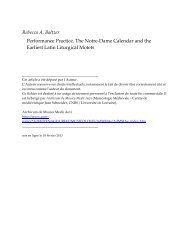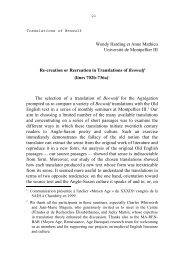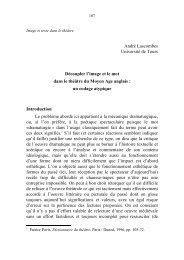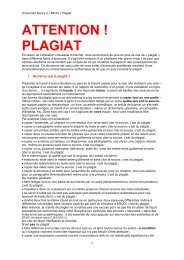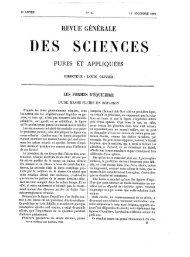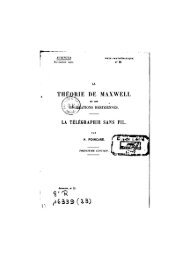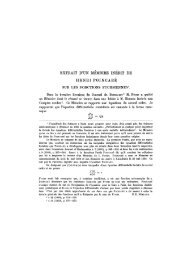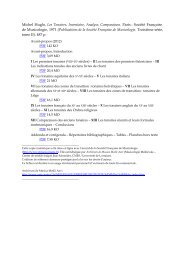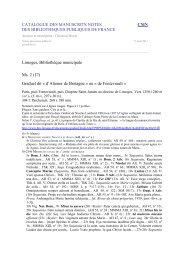You also want an ePaper? Increase the reach of your titles
YUMPU automatically turns print PDFs into web optimized ePapers that Google loves.
Lytle werede<br />
107_(12U<br />
part of it, at least) is a plausible invention designed to enhance the<br />
heroic worth of the West-Saxon king whose praises are sung<br />
throughout the annal. Seen in this light, his body-guard — lytle werede<br />
— would contribute significantly to the portrait of a heroic warrior, up<br />
against the odds, rashly risking life and limb to preserve his honour.<br />
The Beowulf poet would certainly have approved of both the action<br />
and the sentiment underlying it, as this gnomic utterance makes clear:<br />
Swa sceal man don<br />
þonne he æt guðe gegan þenceð<br />
longsumne lof; na ymb his lif cearað. (1534-36) 11<br />
Perhaps I should say at this point that my argument does not<br />
depend necessarily on calling into question the statement that<br />
Cynewulf visited his lady friend at Merton lytle werede. It is not as a<br />
piece of neutral description that the phrase invites scrutiny; rather, it is<br />
in its power to evoke both physical and moral strength in desperate<br />
situations experienced by men of worth and valour.<br />
Other instances of the phrase reinforce the idea that its function is<br />
not principally descriptive. Although they may be seen to respond in a<br />
general way to a cue in the source the writers were presumably<br />
following, the consistency with which lytle werede is evoked, in a<br />
range of genres, suggests that it belongs more to the literary<br />
imagination that to the historical.<br />
I make reference first to Ælfric's free paraphrase of parts of the<br />
books of the Machabees, in which Judas Machabeus is constantly<br />
portrayed as the bold, fearless scourge of the heathens, þa hæðenan as<br />
Ælfric has it. 12 There is much detail in the biblical account which<br />
Ælfric decides to pass over, and it seems reasonable therefore to<br />
suppose that those details retained and elaborated in the English text<br />
11 . Friedrich Klaeber (ed.), Beowulf and the Fight at Finnsburg, 3rd edition with<br />
supplements, Boston: Heath, 1950.<br />
12 . Skeat, op. cit., vol. 2, p. 88, line 358.




